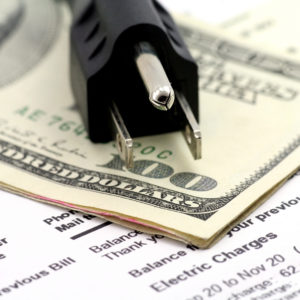New Hampshire is one of 25 states urging the U.S. Supreme Court to step in and stop the Biden administration from imposing new energy regulations that critics say would drive electricity prices higher and make blackouts more likely.
“New Hampshire has joined this coalition of states to protect our consumers and energy customers from undue burdens imposed by the EPA’s new rule. The rule in question threatens to significantly impact our state’s energy costs and reliability by mandating technologies that are currently impractical and costly for our power plants to implement,” said New Hampshire Attorney General John Formella.
At issue is the Environmental Protection Agency’s so-called “Clean Power Plan 2.0” carbon emissions rule finalized in May. It mandates existing coal plants and new baseload natural gas plants to deploy carbon capture and storage (CCS) at a 90 percent capture rate by 2032.
No power plants currently operating meet that mandate. As a result, critics warn, the availability of baseload electricity could plunge — in New England and across the nation — even as the demand for electricity due to green-energy mandates soars.
A three-judge panel of the U.S. Court of Appeals for the District of Columbia Circuit ruled last month that the EPA could move forward with its new regulations, rejecting the argument that the case invoked a “major questions” issue. Under the “major questions” doctrine, significant public policy changes — such as bringing about the end of the coal industry, for example — can’t be made by regulators via policy changes. Such decisions must be made by an act of Congress.
“By seeking an emergency stay from the U.S. Supreme Court, we aim to ensure that our energy infrastructure remains stable and affordable while maintaining compliance with environmental standards. This action underscores our commitment to striking a balance between environmental protection and the economic well-being of New Hampshire residents,” Formella said.
Of particular concern for Granite State ratepayers — who already pay among the highest prices for electricity in the country — is the potential impact on natural gas power generation. Natural gas generates about a quarter of New Hampshire’s electricity and 43 percent nationwide.
But ending coal generation, which currently accounts for 13 percent of total power generation nationwide, would also hurt local consumers by pulling supply out of the national market, driving up the cost of the remaining power.
Michelle Bloodworth, president and CEO of America’s Power, points out many legal challenges remain, and allowing President Joe Biden to force this new rule on his way out of office is unfair to energy producers and will hurt ratepayers.
“The Clean Power Plan 2.0 is designed to force the closure of coal power plants even though they provide dependable electricity to ratepayers in 40 states. We simply cannot eliminate coal and expect to maintain a reliable, affordable, and secure supply of electricity,” said Bloodworth, whose organization represents America’s coal industry.
“Halting the rule until legal challenges are settled is necessary to prevent utilities from wasting hundreds of millions of ratepayer dollars in an attempt to comply with a rule that is not only an illegal overreach but will undermine the reliability of our electricity system, reduce supplies of electricity at the same time electricity demand is exploding, and allow the administration to impose its unrealistic and expensive energy preferences on states and consumers,”
And then there are the legal challenges to the Biden policy.
Critics like the National Taxpayers Union say it’s a revision of an Obama-era order the Supreme Court already struck down, ruling it regulatory overreach.
“Given both separation of powers principles and a practical understanding of legislative intent, the agency must point to ‘clear congressional authorization’ for the authority it claims,” the Supreme Court ruled.
Formella and his fellow attorneys general agree, calling Biden’s plan “deja vu all over again.”
“Once more, EPA looks to Section 111 to justify imposing major, jarring shifts in the nation’s power market. The effort is perhaps subtler than EPA’s last try; it hasn’t given the rule a special name or coined any new terms. But it’s no less problematic, setting impossible-to-meet standards for regulated facilities, stripping away the States’ discretion to patch up the damage, and ultimately pushing regulated sources into early retirements,” they wrote.
Energy policy has emerged as a significant issue in the governor’s race. While Republicans Kelly Ayotte and Chuck Morse both support an “all of the above” approach and reject green energy mandates, the Democrats have embraced the party’s progressive energy policies.
Executive Councilor Cinde Warmington has released her “CLEAN Energy Economy Plan” to get New Hampshire “to net zero emissions by 2040.” That’s a tall order for a state where 99 percent of cars on the road use gasoline and about 60 percent of households use oil or propane for heat.
And while mayor of Manchester, Joyce Craig pledged to uphold the Paris Climate Accord, which commits to zero carbon emissions by 2050.
The attorneys general argue major policy decisions should not be made by unelected regulators, particularly when the stakes are so high.
“The Court should once more act to ensure a critical industry is not irreparably damaged by an unlawful regulatory campaign that’s likely to be set aside. The Court should grant Applicants’ request and stay the entire rule.”





